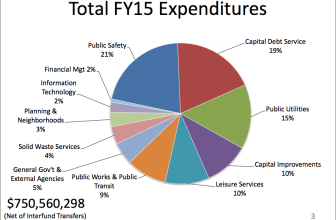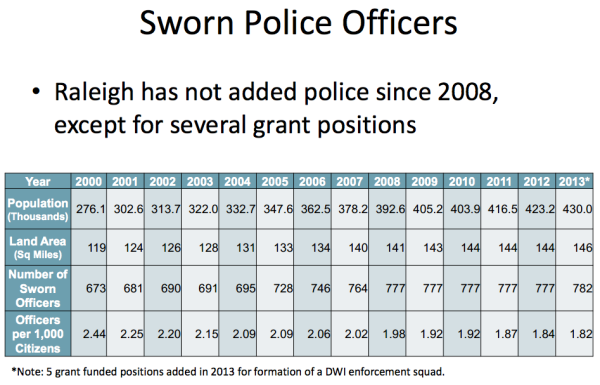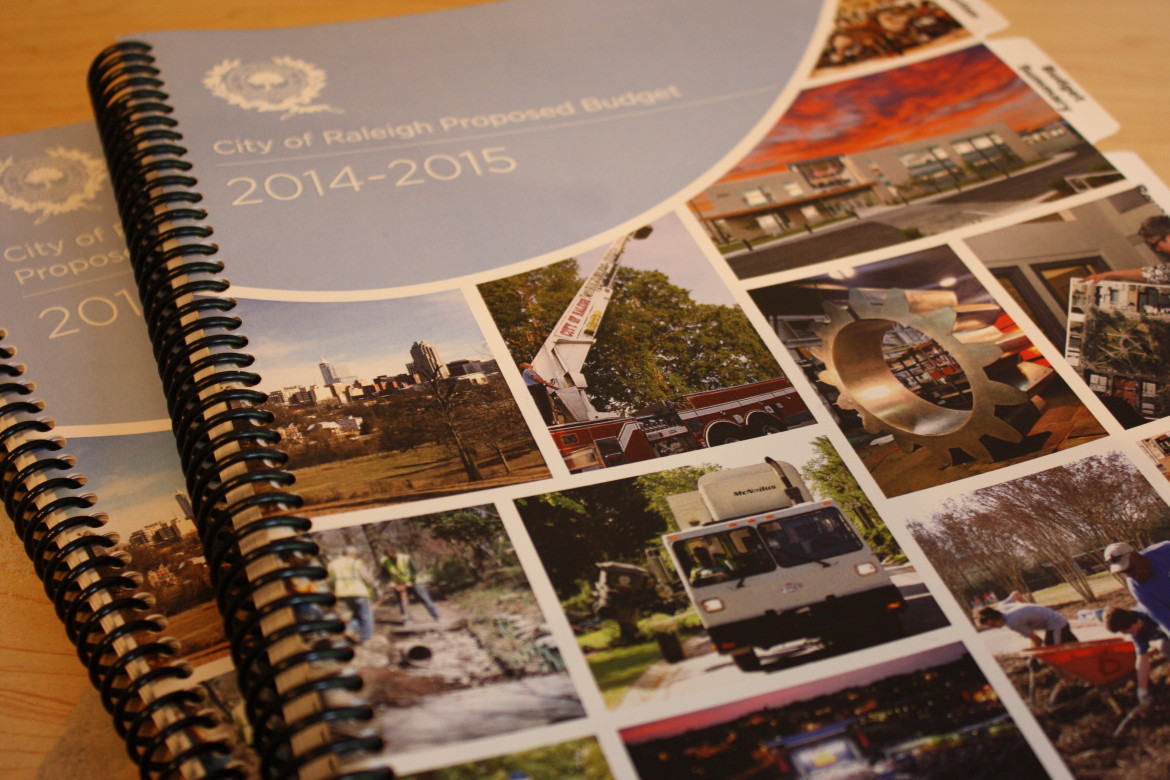The theme for the new City of Raleigh budget proposal is catching up on expenses after the recession of the past few years. A proposed tax increase for Raleigh residents would go toward resurfacing city streets. The budget proposal for next year also includes a $1 increase for solid waste fees.
City Manager Ruffin Hall’s proposed $750.5 million budget includes a 1-cent property tax increase that would raise about $5.1 million to fund resurfacing projects on city streets. The additional revenue would be added to the existing $2 million that has historically been budgeted for street resurfacing for a total of $7.1 million.
“This was probably the most startling piece of budgetary information that I reviewed in the first six months,” said Hall.

Courtesy City of Raleigh
A slide showing the city's expenditures.
At its current funding levels, the city can only resurface all of its streets once every century. Ideally, each of the streets would be resurfaced every 12 to 15 years. In order to adequately fund a street resurfacing program, Hall said the city would need to spend $12 million per year.
The 1,055 miles of city roads that would be covered by the increase don’t include the state-owned roads, which also cut through the city.
The budget includes hiring two more five-person crews that are responsible for general street maintenance like filling potholes and making road repairs.
Extra money for road resurfacing isn’t the only increase residents should expect.
A $1 increase to the solid waste fee would be used to fund truck and cart replacement. The Solid Waste Services budget is an enterprise fund, which means that it should be self-sustaining through fees. As it stands now, the department requires a supplement from the general fund.
The $1 increase is the first step to bringing the department to 80 percent cost recovery within the next five years. If the budget is adopted, Raleigh customers can expect a trash and recycling bill totaling $13.30 per month.
The budget also includes a 1.12-cent increase that’s associated with a $75 million transportation bond that was approved in October.
Playing Catch-up
The budget funds nine new police officers; outside of grant-funded hires the city hasn’t added police officers to the force since 2008. While the city’s population has doubled since 2000, the number of swore officers has stayed fairly stagnant.

Courtesy City of Raleigh
Fire Station 29 on Leesville Road will be completed this fall and $3.2 million will go to staffing two new engine companies. This is the first new station since 2007.
Catching up was a major theme of the budget as the city tries to tackle all of the deferred maintenance from the start of the recession.
“The city is doing better, but there are some things from the past that we need to address,” said Hall.
Spending for new equipment all but stalled during the recession and the city has been slowly picking up the pace since the economy began to improve.
Hall’s budget includes $21.9 million to purchase new vehicles and equipment for the city’s departments. Comparatively, in 2011, the city spent $4.7 million.
Employee salaries are also in catch-up mode with the budget including $5.6 million for an average merit increase of 2.9 percent. Employee health insurance premiums are staying the same and the city’s contribution to the retirement plan will increase from a 2 percent to a 3 percent match. The match was decreased several years ago with a promise to bring it back.
Public Input and Council Discussions
Public hearing: June 3, 7 p.m., Council Chambers
Budget work sessions: Each Monday in June at 4 p.m., Council Chambers
Find the budget online here.
